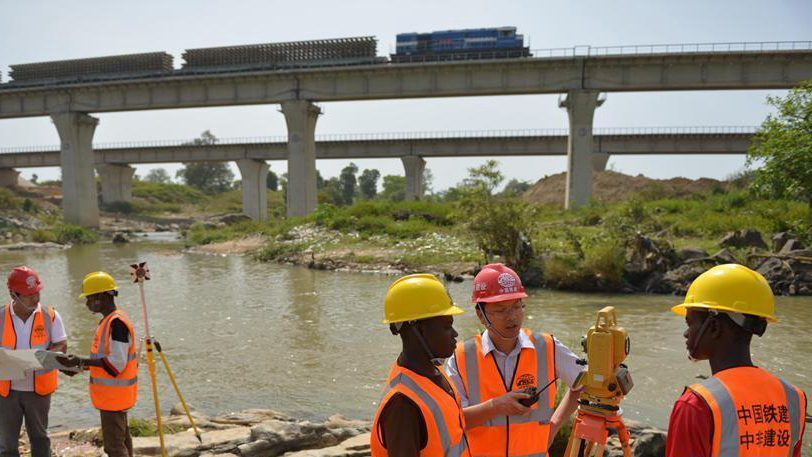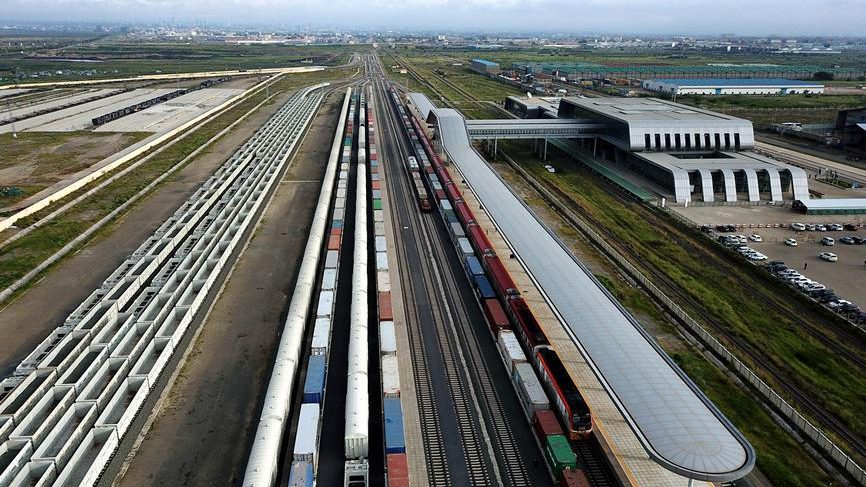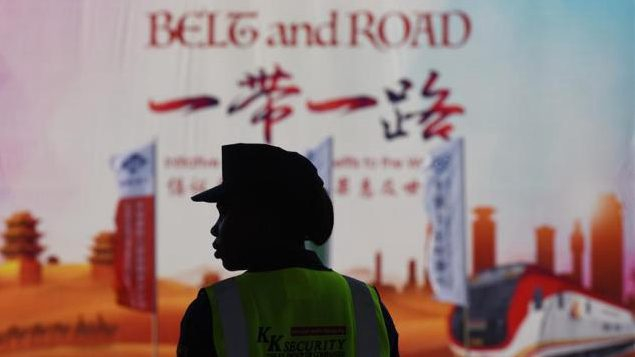
Opinions
21:16, 24-Jul-2018
Driving the industrialization of Africa with the Belt and Road Initiative
Updated
20:40, 27-Jul-2018

Editor's note: The article first appeared on China Plus on July 24. It reflects the author's opinion, and not necessarily the views of CGTN.
China's President Xi Jinping arrived in Pretoria on Monday on a state visit to South Africa, after concluding state visits to Senegal and Rwanda. He is due to visit Mauritius before returning to China. One of the things that these countries have in common is their participation in the Belt and Road Initiative (BRI).
Although their national conditions and levels of economic development may vary, the people of China and Africa are like-minded when it comes to their determination to follow the road towards development and prosperity. Five years ago when Xi visited Africa for the first time, he put forward the policy of "sincerity, real results, affinity, and good faith".
By this, he meant treating African friends with sincerity, strengthening cooperation, and candidly solving shared problems. In the five years that followed, this approach has deepened and broadened China-Africa cooperation and friendship.
Many countries in Africa have expressed their strong desire to participate in the BRI. Senegal's President Macky Sall and Rwanda's President Paul Kagame are two leaders who have repeatedly expressed support for the initiative. Both internal and external factors make participating in the BRI an attractive choice.

Aerial photo taken on June 3, 2018 shows trains stop at the Nairobi railway station in Nairobi, capital of Kenya. /Xinhua News Agency
Aerial photo taken on June 3, 2018 shows trains stop at the Nairobi railway station in Nairobi, capital of Kenya. /Xinhua News Agency
Looking at the external factors, Europe and the United States are in a phase of strategic contraction when it comes to their policies towards Africa. After President Donald Trump took office, the US reduced its focus on Africa. Meanwhile, Europe is turning inwards as it struggles to cope with the refugee crisis and the specter of terrorism.
At the same time that Europe and the US are turning away from the continent, Africa is collectively looking eastward. Africa has rising expectations for the role that China can play. Many African countries see participation in the BRI as a way to accelerate the transfer of technology to Africa, and in doing so, create more jobs and drive the economic transformation of the continent.
Looking at some of the internal factors, many African leaders hope to reverse the trend towards deindustrialization in their countries with the help of the BRI. Since the 1980s, under the guidance of Western experts advocating their particular vision of structural reform, Africa has repeatedly adjusted its model of economic development, but it has remained at the edge of the international economy and has even experienced a rollback of industrialization.
The share of Africa's gross domestic product that comes from industrial manufacturing fell from 18 percent in 1975 to 11 percent in 2015. The BRI provides opportunities for industrial cooperation and technology transfers, which many African governments consider to be an important opportunity for driving industrialization in their continent.
The foundation for African participation in the BRI is solid. China and Africa share common and converging ideas about development. Under the existing framework for China-Africa cooperation, the two sides will jointly build road, railway, and regional aviation networks in a bid to promote infrastructure construction and industrialization.

Security guard is seen at Nairobi Terminus of Mombasa-Nairobi Standard Gauge Railway (SGR), in Nairobi, capital of Kenya, May 31, 2017./Xinhua News Agency
Security guard is seen at Nairobi Terminus of Mombasa-Nairobi Standard Gauge Railway (SGR), in Nairobi, capital of Kenya, May 31, 2017./Xinhua News Agency
They will also implement cooperation plans, including the China-Africa industrialization plan, which stress the importance of the inter-connectivity of infrastructure. At the same time, Africa has also taken the initiative to boost its connectivity with China. For example, according to the African Union's "Agenda 2063", China plays a key role in supporting Africa's industrialization.
Africa is becoming an indispensable part of the BRI. After years of work, it has become a region where the initiative has achieved fruitful results. For example, the Chinese-built Addis Ababa-Djibouti railway linking Ethiopia and Djibouti, and the Mombasa-Nairobi railway that links Kenya's capital Nairobi and its port city Mombasa, have both started operation.
On July 21, Xi and Sall witnessed the signing of their Belt and Road cooperation agreement – the first Belt and Road participation agreement of its kind signed by a West African country. And on July 23, Xi and Kagame witnessed the signing of a variety of cooperation documents, including one for the BRI.
It is clear to many people that, as more and more Belt and Road projects in Africa yield positive results, the initiative will continue to thrive throughout the African continent as it moves along the road towards shared prosperity.
(Cover: Chinese and local employees work at the construction site of a rail project linking Nigeria's capital city Abuja and its northwestern state of Kaduna, Nov. 25, 2014. /Xinhua News Agency)

SITEMAP
Copyright © 2018 CGTN. Beijing ICP prepared NO.16065310-3
Copyright © 2018 CGTN. Beijing ICP prepared NO.16065310-3